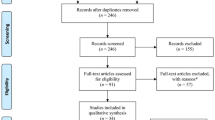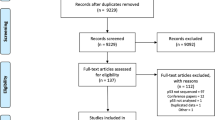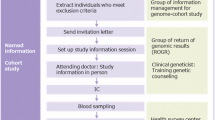Abstract
Polymorphisms (A33512C, C21151T and PAT −/+) of the xeroderma pigmentosum group C (XPC) were shown to contribute to genetic susceptibility to cancer. However, association studies on these polymorphisms in cancer have shown conflicting results. Thus, we performed a meta-analysis. Overall, there was no significant association between 33512C (9,091 patients and 11,553 controls) and cancer risk. No significant association was found in stratification analysis by tumor sites and ethnicities except an elevated lung cancer risk under the recessive genetic model in all subjects [P = 0.04, odds ratio (OR) = 1.20, 95% confidence interval (CI) 1.00–1.45, P heterogeneity = 0.88]. There was no significant association between 21151T (5,227 patients and 5,959 controls) and cancer risk in all subjects but an increased cancer risk in Caucasians under the recessive genetic model (P = 0.006, OR = 1.45, 95% CI 1.11–1.90, P heterogeneity = 0.75) and homozygote comparison (P = 0.02, OR = 1.41, 95% CI 1.07–1.81, P heterogeneity = 0.41). It might be that 21151T increases bladder cancer risk under the recessive genetic model (P = 0.02, OR = 1.49, 95% CI 1.06–2.09, P heterogeneity = 0.47) and homozygote comparison (P = 0.02, OR = 1.49, 95% CI 1.05–2.11, P heterogeneity = 0.23). There was no significant association between PAT + (4,600 patients and 4,866 controls) and cancer risk in all subjects. An increased cancer risk in Caucasians was found under the recessive genetic model (P = 0.02, OR = 1.20, 95% CI 1.03–1.40, P heterogeneity = 0.37) and homozygote comparison (P = 0.008, OR = 1.26, 95% CI 1.06–1.50, P heterogeneity = 0.13). The XPC PAT + allele might increase head and neck cancer risk (P = 0.02, OR = 1.29, 95% CI 1.04–1.59, P heterogeneity = 0.15). More studies based on larger, stratified, case–control population, especially studies investigate the combined effect of XPC A33512C, C21151T, and PAT, are required to further evaluate the role of these polymorphisms in different cancers.
Similar content being viewed by others
Log in or create a free account to read this content
Gain free access to this article, as well as selected content from this journal and more on nature.com
or
References
Bai Y, Xu L, Yang X, Hu Z, Yuan J, Wang F, Shao M, Yuan W, Qian J, Ma H, Wang Y, Liu H, Chen W, Yang L, Jing G, Huo X, Chen F, Liu Y, Jin L, Wei Q, Huang W, Shen H, Lu D, Wu T (2007) Sequence variations in DNA repair gene XPC is associated with lung cancer risk in a Chinese population: a case–control study. BMC Cancer 7:81
Blankenburg S, Konig IR, Moessner R, Laspe P, Thoms KM, Krueger U, Khan SG, Westphal G, Berking C, Volkenandt M, Reich K, Neumann C, Ziegler A, Kraemer KH, Emmert S (2005) Assessment of 3 xeroderma pigmentosum group C gene polymorphisms and risk of cutaneous melanoma: a case–control study. Carcinogenesis 26:1085–1090
Casson AG, Zheng Z, Evans SC, Veugelers PJ, Porter GA, Guernsey DL (2005) Polymorphisms in DNA repair genes in the molecular pathogenesis of esophageal (Barrett) adenocarcinoma. Carcinogenesis 26:1536–1541
de Laat WL, Jaspers NG, Hoeijmakers JH (1999) Molecular mechanism of nucleotide excision repair. Genes Dev 13:768–785
De Ruyck K, Szaumkessel M, De Rudder I, Dehoorne A, Vral A, Claes K, Velghe A, Van Meerbeeck J, Thierens H (2007) Polymorphisms in base-excision repair and nucleotide-excision repair genes in relation to lung cancer risk. Mutat Res 631(2):101–110
Egger M, Davey Smith G, Schneider M, Minder C (1997) Bias in meta-analysis detected by a simple, graphical test. Bmj 315:629–634
Festa F, Kumar R, Sanyal S, Unden B, Nordfors L, Lindholm B, Snellman E, Schalling M, Forsti A, Hemminki K (2005) Basal cell carcinoma and variants in genes coding for immune response, DNA repair, folate and iron metabolism. Mutat Res 574:105–111
Hansen RD, Sorensen M, Tjonneland A, Overvad K, Wallin H, Raaschou-Nielsen O, Vogel U (2007) XPA A23G, XPC Lys939Gln, XPD Lys751Gln and XPD Asp312Asn polymorphisms, interactions with smoking, alcohol and dietary factors, and risk of colorectal cancer. Mutat Res 619:68–80
Hirata H, Hinoda Y, Matsuyama H, Tanaka Y, Okayama N, Suehiro Y, Zhao H, Urakami S, Kawamoto K, Kawakami T, Igawa M, Naito K, Dahiya R (2006) Polymorphisms of DNA repair genes are associated with renal cell carcinoma. Biochem Biophys Res Commun 342:1058–1062
Hirata H, Hinoda Y, Tanaka Y, Okayama N, Suehiro Y, Kawamoto K, Kikuno N, Majid S, Vejdani K, Dahiya R (2007) Polymorphisms of DNA repair genes are risk factors for prostate cancer. Eur J Cancer 43:231–237
Hoeijmakers JH (2001) Genome maintenance mechanisms for preventing cancer. Nature 411:366–374
Hollander MC, Philburn RT, Patterson AD, Velasco-Miguel S, Friedberg EC, Linnoila RI, Fornace AJ Jr (2005) Deletion of XPC leads to lung tumors in mice and is associated with early events in human lung carcinogenesis. Proc Natl Acad Sci USA 102:13200–13205
Hu Z, Wang Y, Wang X, Liang G, Miao X, Xu Y, Tan W, Wei Q, Lin D, Shen H (2005) DNA repair gene XPC genotypes/haplotypes and risk of lung cancer in a Chinese population. Int J Cancer 115:478–483
Huang WY, Berndt SI, Kang D, Chatterjee N, Chanock SJ, Yeager M, Welch R, Bresalier RS, Weissfeld JL, Hayes RB (2006) Nucleotide excision repair gene polymorphisms and risk of advanced colorectal adenoma: XPC polymorphisms modify smoking-related risk. Cancer Epidemiol Biomarkers Prev 15:306–311
Khan SG, Metter EJ, Tarone RE, Bohr VA, Grossman L, Hedayati M, Bale SJ, Emmert S, Kraemer KH (2000) A new xeroderma pigmentosum group C poly(AT) insertion/deletion polymorphism. Carcinogenesis 21:1821–1825
Khan SG, Muniz-Medina V, Shahlavi T, Baker CC, Inui H, Ueda T, Emmert S, Schneider TD, Kraemer KH (2002) The human XPC DNA repair gene: arrangement, splice site information content and influence of a single nucleotide polymorphism in a splice acceptor site on alternative splicing and function. Nucleic Acids Res 30:3624–3631
Kietthubthew S, Sriplung H, Au WW, Ishida T (2006) Polymorphism in DNA repair genes and oral squamous cell carcinoma in Thailand. Int J Hyg Environ Health 209:21–29
Lau J, Ioannidis JP, Schmid CH (1997) Quantitative synthesis in systematic reviews. Ann Intern Med 127:820–826
Lee GY, Jang JS, Lee SY, Jeon HS, Kim KM, Choi JE, Park JM, Chae MH, Lee WK, Kam S, Kim IS, Lee JT, Jung TH, Park JY (2005) XPC polymorphisms and lung cancer risk. Int J Cancer 115:807–813
Li C, Hu Z, Liu Z, Wang LE, Strom SS, Gershenwald JE, Lee JE, Ross MI, Mansfield PF, Cormier JN, Prieto VG, Duvic M, Grimm EA, Wei Q (2006) Polymorphisms in the DNA repair genes XPC, XPD, and XPG and risk of cutaneous melanoma: a case–control analysis. Cancer Epidemiol Biomarkers Prev 15:2526–2532
Marin MS, Lopez-Cima MF, Garcia-Castro L, Pascual T, Marron MG, Tardon A (2004) Poly (AT) polymorphism in intron 11 of the XPC DNA repair gene enhances the risk of lung cancer. Cancer Epidemiol Biomarkers Prev 13:1788–1793
Masutani C, Araki M, Sugasawa K, van der Spek PJ, Yamada A, Uchida A, Maekawa T, Bootsma D, Hoeijmakers JH, Hanaoka F (1997) Identification and characterization of XPC-binding domain of hHR23B. Mol Cell Biol 17:6915–6923
Mechanic LE, Millikan RC, Player J, de Cotret AR, Winkel S, Worley K, Heard K, Heard K, Tse CK, Keku T (2006) Polymorphisms in nucleotide excision repair genes, smoking and breast cancer in African Americans and whites: a population-based case–control study. Carcinogenesis 27:1377–1385
Nelson HH, Christensen B, Karagas MR (2005) The XPC poly-AT polymorphism in nonmelanoma skin cancer. Cancer Lett 222:205–209
Petitti DB (1994) Meta-analysis, decision analysis, and cost-effectiveness analysis. Oxford University Press, Oxford
Sak SC, Barrett JH, Paul AB, Bishop DT, Kiltie AE (2005) The polyAT, intronic IVS11–6 and Lys939Gln XPC polymorphisms are not associated with transitional cell carcinoma of the bladder. Br J Cancer 92:2262–2265
Sak SC, Barrett JH, Paul AB, Bishop DT, Kiltie AE (2006) Comprehensive analysis of 22 XPC polymorphisms and bladder cancer risk. Cancer Epidemiol Biomarkers Prev 15:2537–2541
Salanti G, Sanderson S, Higgins JP (2005) Obstacles and opportunities in meta-analysis of genetic association studies. Genet Med 7:13–20
Sanyal S, Festa F, Sakano S, Zhang Z, Steineck G, Norming U, Wijkstrom H, Larsson P, Kumar R, Hemminki K (2004) Polymorphisms in DNA repair and metabolic genes in bladder cancer. Carcinogenesis 25:729–734
Shen H, Sturgis EM, Khan SG, Qiao Y, Shahlavi T, Eicher SA, Xu Y, Wang X, Strom SS, Spitz MR, Kraemer KH, Wei Q (2001) An intronic poly (AT) polymorphism of the DNA repair gene XPC and risk of squamous cell carcinoma of the head and neck: a case–control study. Cancer Res 61:3321–3325
Shen M, Berndt SI, Rothman N, Demarini DM, Mumford JL, He X, Bonner MR, Tian L, Yeager M, Welch R, Chanock S, Zheng T, Caporaso N, Lan Q (2005) Polymorphisms in the DNA nucleotide excision repair genes and lung cancer risk in Xuan Wei, China. Int J Cancer 116:768–773
Sugasawa K, Ng JM, Masutani C, Iwai S, van der Spek PJ, Eker AP, Hanaoka F, Bootsma D, Hoeijmakers JH (1998) Xeroderma pigmentosum group C protein complex is the initiator of global genome nucleotide excision repair. Mol Cell 2:223–232
Sugimura T, Kumimoto H, Tohnai I, Fukui T, Matsuo K, Tsurusako S, Mitsudo K, Ueda M, Tajima K, Ishizaki K (2006) Gene-environment interaction involved in oral carcinogenesis: molecular epidemiological study for metabolic and DNA repair gene polymorphisms. J Oral Pathol Med 35:11–18
Vogel U, Overvad K, Wallin H, Tjonneland A, Nexo BA, Raaschou-Nielsen O (2005) Combinations of polymorphisms in XPD, XPC and XPA in relation to risk of lung cancer. Cancer Lett 222:67–74
Wang L, Lin DX, Lu XH, Miao XP (2006) [Polymorphisms of the DNA repair genes XRCC1 and XPC: relationship to pancreatic cancer risk]. Wei Sheng Yan Jiu 35:534–536
Weiss JM, Weiss NS, Ulrich CM, Doherty JA, Voigt LF, Chen C (2005) Interindividual variation in nucleotide excision repair genes and risk of endometrial cancer. Cancer Epidemiol Biomarkers Prev 14:2524–2530
Woolf B (1955) On estimating the relation between blood group and disease. Ann Hum Genet 19:251–253
Yang M, Kang MJ, Choi Y, Kim CS, Lee SM, Park CW, Lee HS, Tae K (2005) Associations between XPC expression, genotype, and the risk of head and neck cancer. Environ Mol Mutagen 45:374–379
Ye W, Kumar R, Bacova G, Lagergren J, Hemminki K, Nyren O (2006) The XPD 751Gln allele is associated with an increased risk for esophageal adenocarcinoma: a population-based case–control study in Sweden. Carcinogenesis 27:1835–1841
Zhou RM, Li Y, Wang N, Zhang XJ, Dong XJ, Guo W (2006) [Correlation of XPC Ala499Val and Lys939Gln polymorphisms to risks of esophageal squamous cell carcinoma and gastric cardiac adenocarcinoma]. Ai Zheng 25:1113–1119
Zhu Y, Lai M, Yang H, Lin J, Huang M, Grossman HB, Dinney CP, Wu X (2007) Genotypes, haplotypes and diplotypes of XPC and risk of bladder cancer. Carcinogenesis 28:698–703
Author information
Authors and Affiliations
Corresponding authors
Rights and permissions
About this article
Cite this article
Zhang, D., Chen, C., Fu, X. et al. A meta-analysis of DNA repair gene XPC polymorphisms and cancer risk. J Hum Genet 53, 18–33 (2008). https://doi.org/10.1007/s10038-007-0215-5
Received:
Accepted:
Published:
Issue date:
DOI: https://doi.org/10.1007/s10038-007-0215-5
Keywords
This article is cited by
-
Predictive genetic markers in neoadjuvant chemoradiotherapy for locally advanced esophageal cancer: a long way to go. Review of the literature
The Pharmacogenomics Journal (2018)
-
Polymorphisms in the XPC gene affect urinary bladder cancer risk: a case-control study, meta-analyses and trial sequential analyses
Scientific Reports (2016)
-
Potential risk of esophageal squamous cell carcinoma due to nucleotide excision repair XPA and XPC gene variants and their interaction among themselves and with environmental factors
Tumor Biology (2016)
-
In silico dissection of miRNA targetome polymorphisms and their role in regulating miRNA-mediated gene expression in esophageal cancer
Cell Biochemistry and Biophysics (2016)
-
Associations between polymorphisms of the XPC gene and lung cancer susceptibility: a meta-analysis
Tumor Biology (2014)



